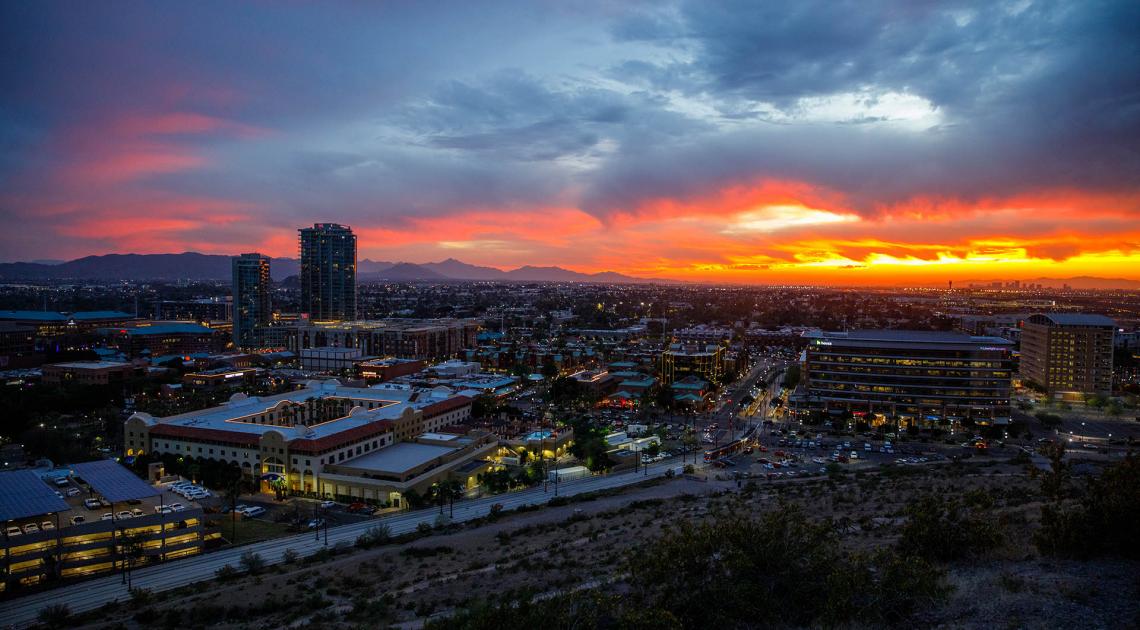
Leading professionals from Arizona Public Service Co., Salt River Project, Tucson Electric Power and Southwest Gas, and from Arizona State University, the University of Arizona and Northern Arizona University, will play a crucial leadership role in helping Arizona explore options and strategic pathways that move the state toward a carbon-neutral and thriving economy.
To begin, the coalition established a new ASU-based center called the “Center for an Arizona Carbon-Neutral Economy,” housed within the Julie Ann Wrigley Global Futures Laboratory™ on the ASU Tempe campus. Among its first undertakings, the center will pursue the creation of a regional clean hydrogen hub.
Hydrogen can fuel chemical reactions that release clean energy and produce only water – H2O, not CO2. That means much of the energy used to create pure hydrogen can be essentially “stored” in the gas itself and used to provide carbon-free energy or feedstock on demand. Tapping this potential could help reduce carbon emissions in many sectors of the economy.
In late-October 2021, the U.S. Congress passed the bipartisan Infrastructure Investment and Jobs Act, which the President signed in mid-November 2021. The law establishes program guidance and funding to create regional clean hydrogen hubs, which the coalition will seek. The clean hydrogen hub, while still being fully defined, will include hydrogen producers, consumers, and a connected infrastructure so that supply and demand are in sync and appropriately buffered with storage.
A successful regional clean hydrogen hub will help address difficult-to-reduce carbon dioxide emissions in the state, as well as grow Arizona’s economy, attract new businesses and create high-quality jobs. When fully operational, a new hub would help support a reliable and resilient electric grid, provide clean energy for the electric, transportation and industrial sectors, and potentially create economic development opportunities in communities that are adversely impacted by the closure of fossil-fueled plants.
Involving these communities in the process is a critical component of the coalition’s work. By engaging a wide range of diverse stakeholders, the group will develop a shared strategy to create a new hydrogen ecosystem and industry in Arizona. Stakeholders will be part of a collaborative network that directly involves communities, tribes, businesses, universities, government agencies, nonprofit organizations, and other interested parties in the process.
Collectively defining the vision, governance, and organizational structure for the hub requires a deeper dive into a myriad of assets and resources available in the state and this effort is already underway.
Arizona is one of the nation’s sunniest states, with significant available undeveloped land and abundant clean energy resources. It has the largest nuclear power plant in the nation, energy providers that have committed to reduce carbon dioxide emissions, world-class innovative universities, an established and growing industry base, and a healthy environment for innovation and start-ups. These resources, along with the region’s highly skilled workforce, can be used in producing, moving, storing and using hydrogen. While Arizona is currently a net energy importer, these assets could help the state become an energy exporter, bolstering its economy and helping others’ efforts to achieve their clean energy goals.











